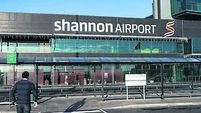North Korea provokes anger with nuclear test
North Korea claimed it carried out a provocative underground nuclear test today in the escalating international stand-off over its rogue nuclear and missile programmes.
Russia’s defence ministry confirmed an atomic explosion at 9.54am local time (1.54am BST) in north-eastern North Korea, estimating the blast’s yield at 10 to 20 kilotons – comparable to the bombs that flattened Hiroshima and Nagasaki.














